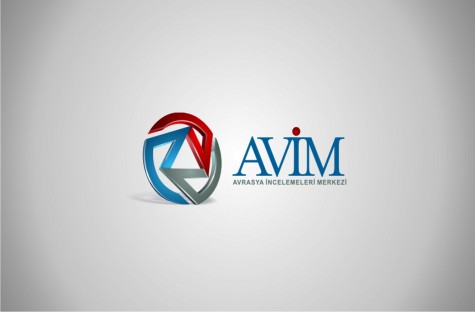
On 15 October 2015, European Court of Human Rights (ECtHR) Grand Chamber declared its final judgement on Perinçek v. Switzerland case. The core of this case was Doğu Perinçek’s (a Turkish national; politician) criminal conviction in Switzerland for his rejection of the characterization of the 1915 events as genocide. The ECtHR Grand Chamber found Switzerland guilty of violating Perinçek’s freedom of speech enacted by Article 10 of the European Convention on Human Rights (ECHR).
It has been sometime since the ‘genocide lobby’ began to pursue a policy of delegitimizing any kind of scholarly/informed discussion on the 1915 events by discrediting those who express alternative views and criminalizing perspectives that are not favored by the mainstream. As such, the ECtHR Grand Chamber’s judgement is a landmark judgement with respect to the ‘genocide politics’ of the Armenians, which will oblige the ‘genocide lobby’ to revise some of its discourse and policies.
Yet, the judgement of the ECtHR Grand Chamber has an importance that exceeds the boundaries of the ‘Armenian-Turkish dispute’ and reaches to the broader problem of freedoms of thought, conscience and expression vis-à-vis unchallengeable sacreds, uncontestable beliefs, dominant views and other instruments and/or factors of tyranny of majority over those who are in minority position.
Because of its both political and philosophical/theoretical significance, we will be examining the Perinçek v. Switzerland case in a series of articles. The current one is the first article on the issue that aims to disclose the fundamental points of the ECtHR Grand Chamber judgement. The following articles will analyze the background of the ECtHR Grand Chamber judgement, detail important aspects of this judgement, asses the positions and arguments of parties and make projections on the evolution of the ‘genocide politics’.
The Background of the Perinçek v. Switzerland Case
The background of the trial at the ECtHR Grand Chamber dates back to 2005, when Perinçek at three public events in Switzerland delivered speeches in which he rejected the view that 1915 events constituted genocide and identified ‘genocide allegations’ as “imperialist lie”. The Switzerland-Armenia Association, the Armenian lobby organization in Switzerland, sued Perinçek for "publicly denying the Armenian genocide". The Swiss courts found Perinçek guilty of racial discrimination within the meaning of Article 261bis. para. 4 of the Swiss Penal Code. After exhausting the channels within the Swiss judicial system, Perinçek appealed to the ECtHR against Switzerland. On 17 December 2013, like the judgement of the ECtHR Grand Chamber on 15 October 2015, the ECtHR judged that Switzerland violated Perinçek’s freedom of expression. Switzerland brought that judgement to the ECtHR Grand Chamber.
The hearing at the ECtHR Grand Chamber was held on 28 January 2015. Governments of Armenia, France and Turkey, and eight civil society organizations from different countries interfered as third parties. Governments of Armenia and Turkey delivered comments during the hearing. The Armenian Government was represented by two non-Armenian high-profile counsels, namely Amal Clooney and Geoffrey Robertson QC. In fact, the rhetoric and the content of the speeches of Clooney and Robertson QC unveiled that the Armenian government, with not much hope to win against Perinçek, decided to use the courtroom as another platform for expressing once again the customary emotionally charged ‘genocide narrative’ within the emotive atmosphere of the ‘centennial of the Armenian Genocide’.
Delicate but Necessary Balance between Freedom of Speech and Protection of the Dignity of the Individuals
The judgement of the ECtHR Grand Chamber issued on 15 October 2015 is based on one essential point. This point is the delicate but necessary balance between freedom of speech and the protection of the dignity of the individuals.[1]
The ECtHR Grand Chamber confirmed that freedom of expression is an uncontestable right (Article 10 of the ECHR). However, the ECtHR Grand Chamber also confirmed that this right could be restricted “for the protection of the…rights of others” (Article 10 para. 2 of the ECHR). As to this point, the ECtHR referred to Article 8 of the ECHR that frames the “right to respect for private and family life”. This right is associated with the issue of human dignity.
The ECtHR Grand Chamber stated that the dignity of the victims of the 1915 events and “the dignity and identity of modern-day Armenians” are protected by Article 8. Therefore the main issue that the ECtHR Grand Chamber tackled with was to determine whether Perinçek violated the Article 8. In other words, the ECtHR Grand Chamber investigated whether Perinçek insulted the dignity of the Armenians by rejecting the characterization of the 1915 events as genocide. The ECtHR Grand Chamber judged negatively, hence in favor of Perinçek and against Switzerland.
The ECtHR Grand Chamber also found that the context in which Perinçek made his speeches “had not been marked by heightened tensions or special historical overtones in Switzerland” and Perinçek did not “call for hatred or intolerance” against Armenians. As such, the ECtHR confirmed that rejection of the characterization of 1915 events as genocide per se is not an expression of hatred, i.e., hate speech, or intolerance. Furthermore, such views are not necessarily a factor that causes friction between Armenians and Turks, and others.
As said above, for some time ‘genocide lobby’ seeks to silence those views which are not compatible with the Armenian narrative of 1915 by discrediting them in various ways, including insulting the personality of those who express ‘unfavorable’ views even by calling them names such as “denialist”, “provocateur” or just “Turk”. Whenever discrediting of those views are not achievable, ‘genocide lobby’ tries to criminalize them. Doing that, the main argument that is asserted is the alleged equation of rejection of the 1915 events as genocide with hatred to Armenians. The ECtHR judgement invalidates this allegation.
A Matter of Public Interest and Absence of a Need for Criminal Penalty in a Democratic Country
In the merits of the judgement as well as the summary, the ECtHR Grand Chamber stated that Perinçek’s statements “bore on a matter of public interest” and in a democratic country there is no need to subject him “to a criminal penalty in order to protect the rights of the Armenian community”.
Identification of Perinçek’s speeches, hence indirectly public and scholarly debates on the 1915 events, as “a matter of public interest” is an important resolution of the ECtHR that strongly challenges the lately developed strategy of the ‘genocide lobby’ that was mentioned above, i.e., the attempt to silence by delegitimization and criminalization of views that fall out of the ordinary. As a correction to this dangerous, reactionist and despotic design, the ECtHR Grand Chamber defends the freedom of expression of even unpopular views by framing the debate on 1915 as serviceable to the public good. The ECtHR Grand Chamber’s framing the matter as such might be revealing that Europe has learnt lessons from the dark days of the Middle Ages when freedoms were ignored and suppressed in defense of the ‘sacreds’.
The stress on “democratic society”, likewise, is important for drawing a distinction between democratic, pluralistic and tolerant societies and antidemocratic despotic ones and their approaches to freedom of expression. It shows the way to build a society of the former type. Besides, the stress on “democratic society” can also be viewed as a caution about the approaches of the parties of the ‘genocide politics’; the stances of those who try to prevent diverse views and those who defend the freedom of expression of different perspectives.
Absence of Any Obligation for the Criminalization of Diverse Views on 1915 Events
Switzerland in its statements in the ECtHR argued that there have been some revisions in the Swiss Criminal Code to synchronize it with international legal framework. Against this argument, the ECtHR Grand Chamber explained that there was no “international law obligation for Switzerland to criminalize such statements”. This clarification is a very significant one considering the foggy atmosphere that is intended to be created by the ‘genocide lobby’ which blurs the actual with fictitious. To put it simply, there is no internationally binding court judgement that characterizes 1915 events as genocide. Yet, such a valid court judgement is a must to identify 1915 events as genocide, if one chooses to stick to international law and to remain within the frame of legality. Likewise, there is no binding legal judgement that criminalizes the rejection of the characterization of these events as genocide. As such, at the present, the views that identify 1915 events as genocide lack any legal content or validity. These are historical and political discourses, at best intellectual/academic ones, lacking any real effect.
To be continued…
[1] These two rights are enacted by Article 8 and Article 10 of the ECHR.
Article 8
Right to respect for private and family life
1. Everyone has the right to respect for his private and family life, his home and his correspondence.
2. There shall be no interference by a public authority with the exercise of this right except such as is in accordance with the law and is necessary in a democratic society in the interests of national security, public safety or the economic wellbeing of the country, for the prevention of disorder or crime, for the protection of health or morals, or for the protection of the rights and freedoms of others
Article 10
Freedom of expression
1. Everyone has the right to freedom of expression. This right shall include freedom to hold opinions and to receive and impart information and ideas without interference by public authority and regardless of frontiers. This Article shall not prevent States from requiring the licensing of broadcasting, television or cinema enterprises.
2. The exercise of these freedoms, since it carries with it duties and responsibilities, may be subject to such formalities, conditions, restrictions or penalties as are prescribed by law and are necessary in a democratic society, in the interests of national security, territorial integrity or public safety, for the prevention of disorder or crime, for the protection of health or morals, for the protection of the reputation or rights of others, for preventing the disclosure of information received in confidence, or for maintaining the authority and impartiality of the judiciary.
© 2009-2025 Center for Eurasian Studies (AVİM) All Rights Reserved
No comments yet.
-
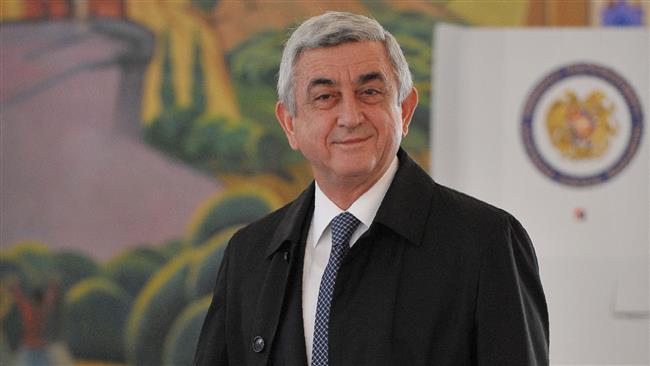 2 APRIL 2017 PARLIAMENTARY ELECTIONS IN ARMENIA
2 APRIL 2017 PARLIAMENTARY ELECTIONS IN ARMENIA
Turgut Kerem TUNCEL 14.04.2017 -
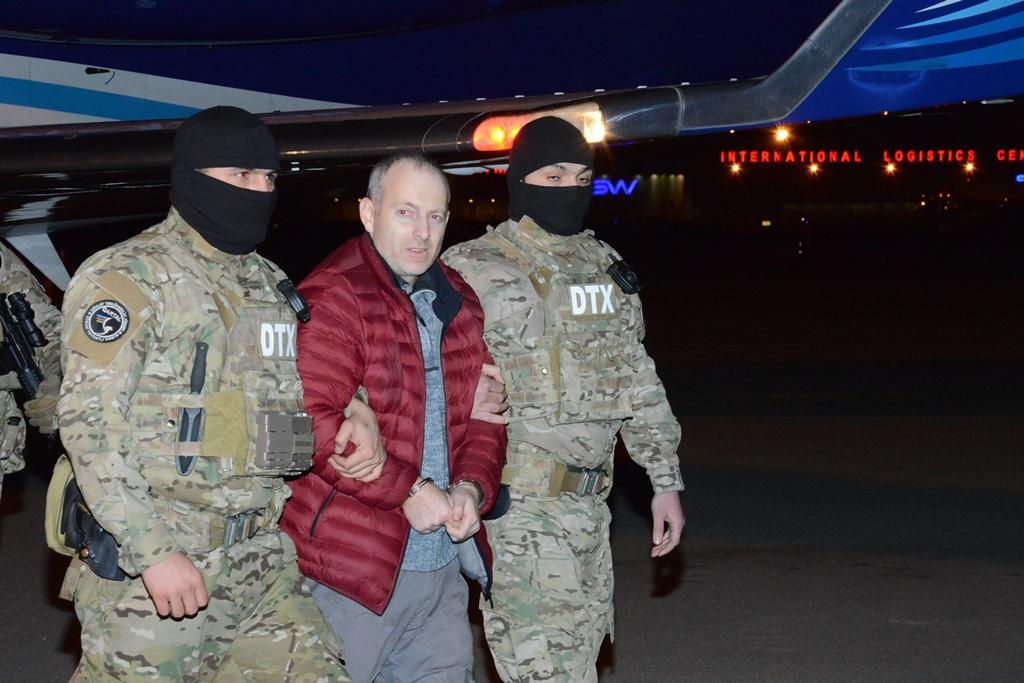 ALEXANDER LAPSHIN’S EXTRADITION TO AZERBAIJAN: A NEW EPISODE IN KARABAKH DISPUTE
ALEXANDER LAPSHIN’S EXTRADITION TO AZERBAIJAN: A NEW EPISODE IN KARABAKH DISPUTE
Turgut Kerem TUNCEL 21.02.2017 -
 THE EUROPEAN COURT OF HUMAN RIGHTS’ APPROACH TO NEGATIONISM AND REVISIONISM AND SOME DEDUCTIONS ON PERINÇEK V. SWITZERLAND CASE
THE EUROPEAN COURT OF HUMAN RIGHTS’ APPROACH TO NEGATIONISM AND REVISIONISM AND SOME DEDUCTIONS ON PERINÇEK V. SWITZERLAND CASE
Turgut Kerem TUNCEL 16.11.2015 -
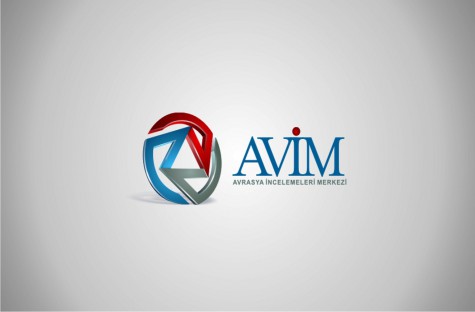 THE BACKTRACK OF AUSTRIA AND LUXEMBURG ON THE CHARACTERIZATION OF THE 1915 EVENTS AS GENOCIDE
THE BACKTRACK OF AUSTRIA AND LUXEMBURG ON THE CHARACTERIZATION OF THE 1915 EVENTS AS GENOCIDE
Turgut Kerem TUNCEL 21.10.2015 -
 THE GRAIN INITIATIVE AND THE BLACK SEA SECURITY - II
THE GRAIN INITIATIVE AND THE BLACK SEA SECURITY - II
Turgut Kerem TUNCEL 03.08.2023
-
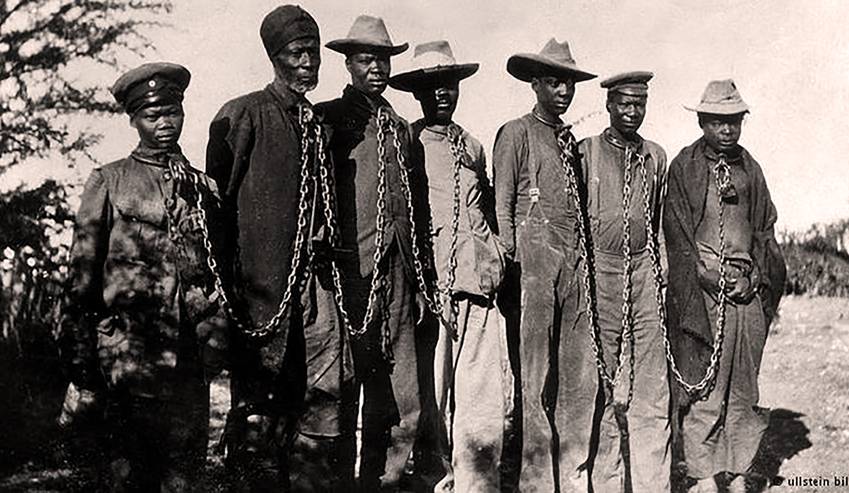 GENOCIDE AND GERMANY
GENOCIDE AND GERMANY
Mehmet Oğuzhan TULUN 10.01.2017 -
 THE LEGAL STATUS OF THE FENER GREEK PATRIARCHATE
THE LEGAL STATUS OF THE FENER GREEK PATRIARCHATE
Gözde KILIÇ YAŞIN 19.10.2022 -
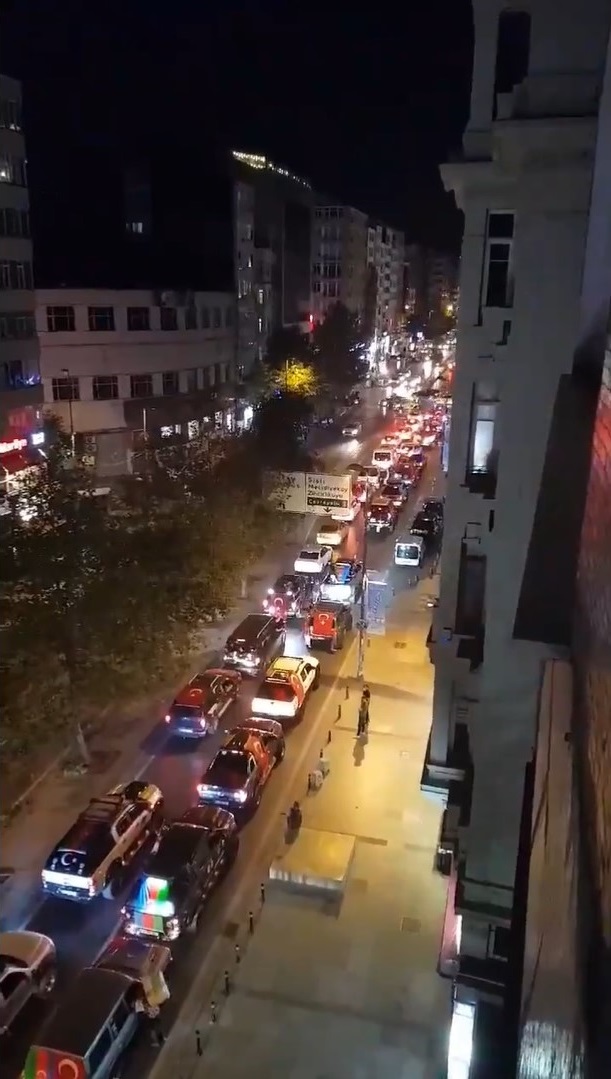 FRANCE 24-THE OBSERVERS PROGRAMME AND FAKE NEWS
FRANCE 24-THE OBSERVERS PROGRAMME AND FAKE NEWS
Mehmet Oğuzhan TULUN 20.10.2020 -
 TÜRKİYE’S MEDIATION IN THE UKRAINE-RUSSIA WAR
TÜRKİYE’S MEDIATION IN THE UKRAINE-RUSSIA WAR
Mehmet Oğuzhan TULUN 23.09.2024 -
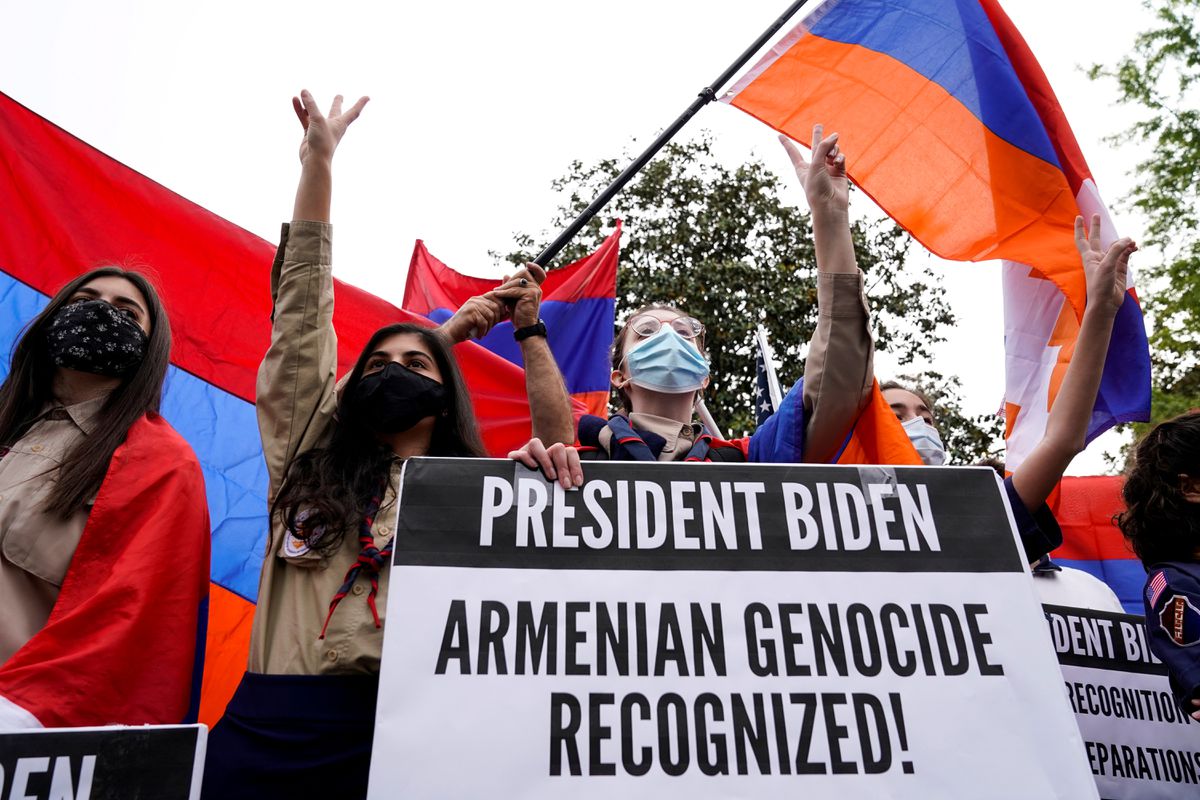 GENOCIDE ACCUSATION AS A FORM OF PUNISHMENT - III
GENOCIDE ACCUSATION AS A FORM OF PUNISHMENT - III
Mehmet Oğuzhan TULUN 27.04.2021
-
25.01.2016
THE ARMENIAN QUESTION - BASIC KNOWLEDGE AND DOCUMENTATION -
12.06.2024
THE TRUTH WILL OUT -
27.03.2023
RADİKAL ERMENİ UNSURLARCA GERÇEKLEŞTİRİLEN MEZALİMLER VE VANDALİZM -
17.03.2023
PATRIOTISM PERVERTED -
23.02.2023
MEN ARE LIKE THAT -
03.02.2023
BAKÜ-TİFLİS-CEYHAN BORU HATTININ YAŞANAN TARİHİ -
16.12.2022
INTERNATIONAL SCHOLARS ON THE EVENTS OF 1915 -
07.12.2022
FAKE PHOTOS AND THE ARMENIAN PROPAGANDA -
07.12.2022
ERMENİ PROPAGANDASI VE SAHTE RESİMLER -
01.01.2022
A Letter From Japan - Strategically Mum: The Silence of the Armenians -
01.01.2022
Japonya'dan Bir Mektup - Stratejik Suskunluk: Ermenilerin Sessizliği -
03.06.2020
Anastas Mikoyan: Confessions of an Armenian Bolshevik -
08.04.2020
Sovyet Sonrası Ukrayna’da Devlet, Toplum ve Siyaset - Değişen Dinamikler, Dönüşen Kimlikler -
12.06.2018
Ermeni Sorunuyla İlgili İngiliz Belgeleri (1912-1923) - British Documents on Armenian Question (1912-1923) -
02.12.2016
Turkish-Russian Academics: A Historical Study on the Caucasus -
01.07.2016
Gürcistan'daki Müslüman Topluluklar: Azınlık Hakları, Kimlik, Siyaset -
10.03.2016
Armenian Diaspora: Diaspora, State and the Imagination of the Republic of Armenia -
24.01.2016
ERMENİ SORUNU - TEMEL BİLGİ VE BELGELER (2. BASKI)
-
AVİM Conference Hall 24.01.2023
CONFERENCE TITLED “HUNGARY’S PERSPECTIVES ON THE TURKIC WORLD"









